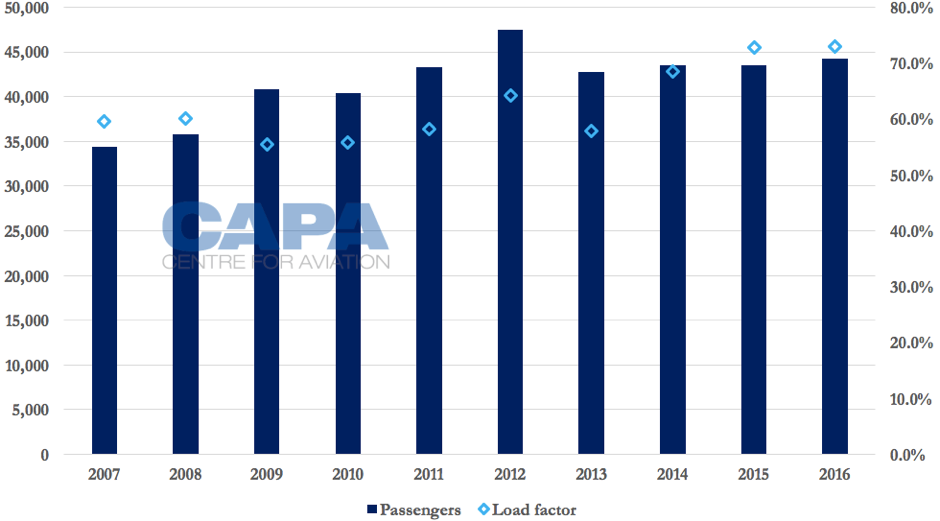Virgin Samoa has served as the national carrier for Samoa since 2005, when a JV was forged between Virgin Australia and the Samoa government. The government announced in May-2017 the termination of the JV by Nov-2017.
Virgin Samoa, formerly known as Polynesian Blue, currently operates from the Samoa capital Apia to Auckland, Brisbane and Sydney using 737-800 aircraft. The Samoa government is intending to maintain services on these routes by establishing a new flag carrier which will also operate 737NGs.
Polynesian Airlines, which served the Samoa-Australia and Samoa-New Zealand markets prior to the launch of Polynesian Blue, will likely operate the 737NG on behalf of the new airline. Polynesian Airlines is 100% government owned and has been operating regional services within the Samoan islands (including to American Samoa) using small turboprop aircraft since the launch of Samoa's JV with Virgin Australia.
Polynesian Airlines is 100% government owned and has been operating regional services within the Samoan islands (including to American Samoa) using small turboprop aircraft since the launch of Samoa's JV with Virgin Australia.
Fiji Airways CEO Andre Viljoen told CAPA on the sidelines of the 5-Jun-2017 IATA AGM that Fiji Airways has an in principal agreement with the Samoan government to assist the government in acquiring a 737NG for the new flag carrier. He said Fiji Airways would train crew and provide support to the new airline, which would take over Virgin Samoa's current routes to Australia and New Zealand.
Mr Viljoen said Fiji's partnership with the Samoan government would also include a joint venture covering any additional flights that Fiji Airways operates from Samoa. Fiji Airways currently operates nine weekly flights to Apia, including seven weekly flights from its main base at Nadi, one weekly flight from the Fijian city of Suva and one weekly flight from Honolulu (based on OAG data for the commencing 12-Jun-2017).
Fiji Airways is looking at operating up to three weekly flights from Apia to Honolulu, with the two additional flights coming under the new joint venture arrangement with the Samoan government. Fiji Airways is also planning to upgrade three of the Nadi-Apia frequencies from the ATR 72-600 to 737-800.
Fiji Airways could eventually operate all Nadi-Apia flights with the 737-800. Under the new partnership with the Samoan government, Fiji Airways would provide one-stop connections from Apia to Sydney the five days per week the new airline does not operate the route, providing a better product particularly for business passengers.
Virgin Samoa currently serves Sydney with two weekly flights and Brisbane with only one weekly flight. Virgin Samoa carried 44,000 passengers to and from Australia in 2016 with an average load factor of 73%, according to BITRE data.
Virgin Samoa annual passenger traffic and average load factor to/from Australia: 2007 to 2016

Source: CAPA - Centre for Aviation & BITRE
Auckland is a much bigger market from Apia with six weekly flights operated by Virgin Samoa and one daily flight operated by Air New Zealand. Air New Zealand, Virgin Samoa and Fiji Airways are the only airlines currently operating international services from Apia's Faleolo Airport. New Zealand accounts for approximately 45% of total visitors to Samoa while Australia accounts for approximately 22%.
The dissolution of the Samoa government-Virgin Australia JV is a major development for a small market heavily dependent on inbound tourism. However, the Samoa government seems to be taking the steps necessary to maintain, and potentially increase, services which are essential for the small country's economy.